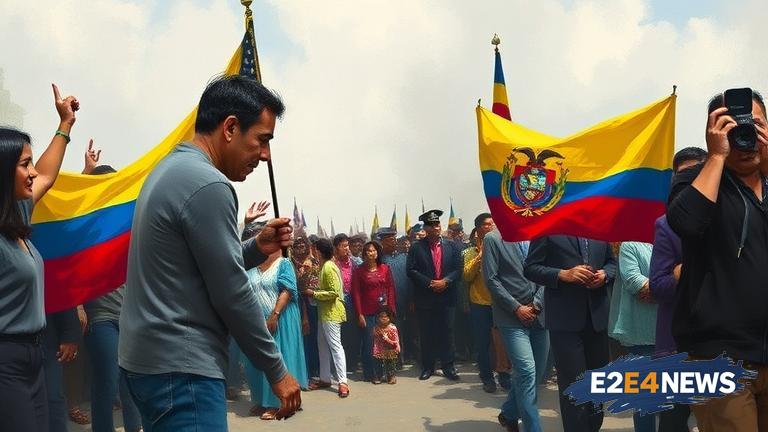The diplomatic relationship between Colombia and Ecuador has reached a boiling point after Ecuador’s decision to deport a large number of Colombian citizens. The Colombian government has strongly condemned the move, labeling it as a ‘mass deportation’ and a clear violation of human rights. According to reports, over 200 Colombian nationals were forcibly removed from Ecuador and sent back to their home country. The Ecuadorian government has cited concerns over national security and public order as the reason behind the deportations. However, Colombia has disputed these claims, arguing that the deportations were carried out without due process or respect for the rights of the individuals involved. The Colombian Foreign Ministry has issued a statement expressing its ‘deep concern’ over the situation and calling on the Ecuadorian government to respect the rights of Colombian citizens. The ministry has also announced that it will be taking steps to protect the rights of its citizens and to prevent similar incidents from occurring in the future. The mass deportation has sparked widespread outrage in Colombia, with many citizens taking to social media to express their condemnation of the Ecuadorian government’s actions. The incident has also raised concerns about the treatment of migrants and refugees in the region, with many advocacy groups calling for greater protections and respect for human rights. The Ecuadorian government has defended its actions, stating that it has the right to protect its national security and public order. However, the Colombian government has argued that the deportations were carried out in a manner that was disproportionate and unjustified. The diplomatic tensions between the two nations are likely to continue in the coming days, with both sides digging in their heels and refusing to back down. The incident has also raised questions about the role of regional organizations, such as the Union of South American Nations, in protecting the rights of migrants and promoting regional cooperation. As the situation continues to unfold, it remains to be seen how the two nations will resolve their differences and whether the incident will have a lasting impact on their diplomatic relationship. The Colombian government has announced that it will be seeking support from other regional nations in its efforts to protect the rights of its citizens. The incident has also sparked a wider debate about the treatment of migrants and refugees in the region, with many calling for greater protections and respect for human rights. In response to the incident, the Colombian government has announced that it will be increasing its diplomatic efforts to protect the rights of its citizens and to promote regional cooperation.
